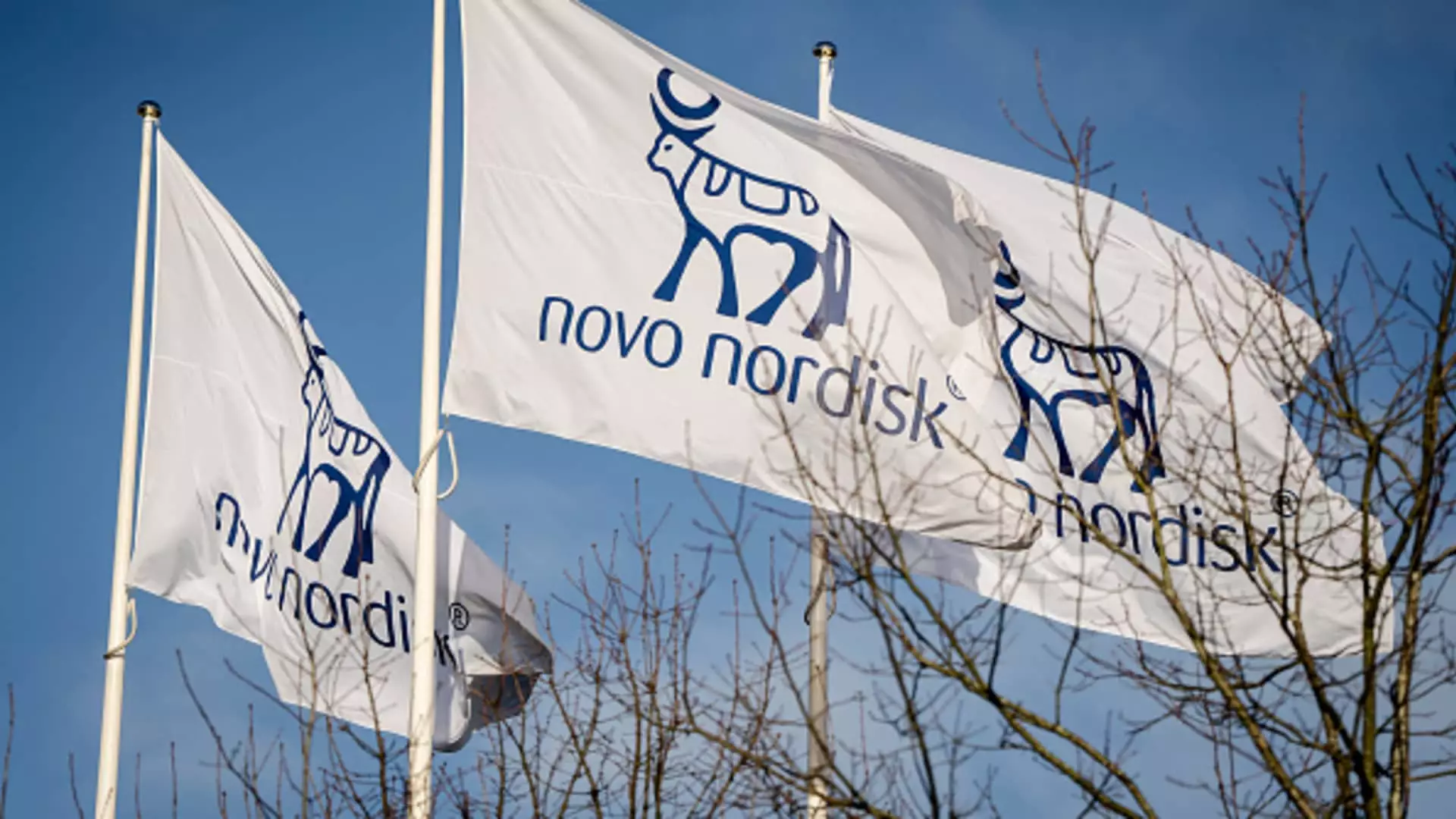In an era of continuous innovation in the medical field, Novo Nordisk has once again made headlines with its latest research on Rybelsus, a once-daily oral medication for managing Type 2 diabetes. The recent late-stage trial unveiled its significant cardiovascular benefits, suggesting it could potentially redefine the treatment landscape not just for diabetes, but also for concurrent heart disease. This revelation is not merely another marginal improvement in diabetes care; it could herald a transformative shift toward more inclusive treatment options for patients disheartened by injections and needle phobia.
The study, which enrolled over 9,600 patients aged 50 and older, showed a 14% reduction in the risk of cardiovascular-related death, heart attack, and stroke among those taking Rybelsus compared to a placebo over an average follow-up period of four years. This remarkable outcome is promising for individuals who have long lived with the dual burden of diabetes and heart complications.
Shifting Patient Perspectives
One of Rybelsus’ most significant advantages is its ability to offer a user-friendly alternative for patients averse to injections. As Stephen Gough, Novo Nordisk’s global chief medical officer, stated, the preferences of patients should dictate their treatment path. For those who experience anxiety around needles or simply seek convenience, Rybelsus stands out as a beacon of hope.
The implications are broad: with an oral option, healthcare professionals can foster more engaged patient-doctor discussions, tailoring treatment plans that respect patient concerns and comfort. This approach not only enhances compliance but also empowers patients to take a more active role in their healthcare journey, a shift that is especially critical in managing chronic conditions like diabetes.
Compelling Data for the Medical Community
What stands out in this trial is not just the efficacy of Rybelsus but the breadth of data supporting its cardiovascular benefits. This aligns it with previously established injectable GLP-1 medications, showcasing that Rybelsus can stand shoulder to shoulder with its counterparts in providing additional health benefits beyond mere glycemic control. The trial results highlighted significant reductions in non-fatal heart attacks and strokes by 26% and 12%, respectively.
However, it is essential to engage with this data critically. While the outcomes are undeniably impressive, the focus on cardiovascular benefits also serves as a reminder of how intertwined diabetes and heart health truly are. It underscores the necessity for medications that address their multifaceted relationship rather than treating them as isolated issues.
Challenges and Side Effects
Despite the promising results, we must not gloss over the potential side effects associated with Rybelsus. The trial reported gastrointestinal discomforts, such as nausea and diarrhea, which did not lead to significant discontinuation rates but remain worth noting. The consistency of these side effects with injectable counterparts points to a common challenge within the GLP-1 class of medications: balancing efficacy with patient tolerability.
Moreover, the requirement for Rybelsus to be taken on an empty stomach complicates matters further, potentially hindering adherence for some patients. While the trial demonstrates that patients can follow the guidelines effectively, it raises questions about long-term compliance in everyday settings. This emphasizes why patient education and support are crucial components in driving successful treatment outcomes.
Competitive Landscape and Future Implications
As Novo Nordisk prepares to seek expanded approval for Rybelsus in the U.S. and EU, it enters a competitive landscape filled with other pharmaceutical players, such as Eli Lilly, that are also advancing oral GLP-1 options. This burgeoning field creates a dynamic market that not only fosters competition but also offers patients a variety of choices.
The advancements in this domain are exciting, yet they also necessitate discernment. Patients should remain informed about the nuances of these treatments, including potential differences in efficacy and side effect profiles. The ultimate goal should be to ensure that patients have access to medications that best fit their lifestyle and health needs rather than simply opting for the latest pharmaceutical trend.
Rybelsus serves as a compelling case study on how innovation can bridge gaps in healthcare delivery, particularly for chronic illness management. The intersection of diabetes and cardiovascular health is complex, yet Novo Nordisk’s research brings us one step closer to unraveling this intricate relationship through patient-centered solutions.


Leave a Reply